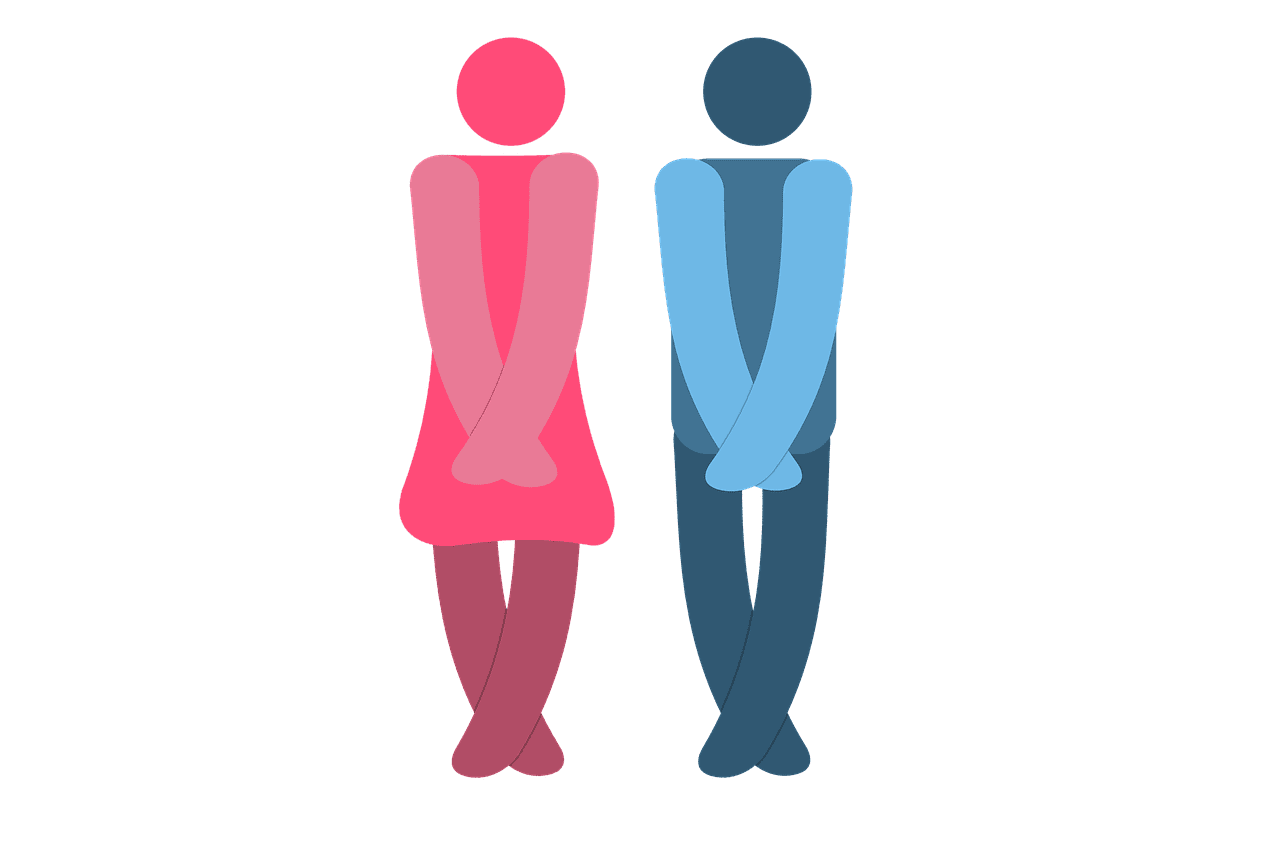Symptoms of Covid are frequently the same as for catching a cold – coughing, runny nose, and headache are just a few you would be acquainted with.
More odd symptoms, such as burping and pink eye, may manifest themselves in a tiny percentage of cases. Symptoms usually subside on their own as the body tackles the infection on its own.
However, as we all know, the virus has left millions of people with “long Covid,” resulting in a wide range of side effects that refuse to go away. Certain ”events”, such as a change in the size of a person’s penis or problems with bladder control, might undermine their confidence.
If you are experiencing any of these, it is critical that you consult a doctor. They may find that Covid is not the source of the problem and prescribe medication for the underlying problem.
Let’s take a look at some of the most embarrassing issues that Covid may create and when to know it’s just normal to happen:
1. Burping
According to specialists, burping usually comes up to 30 times every day, both noisily and quietly. Burping is more likely to occur after eating certain foods, like broccoli, apples, pears, break, or after drinking anything carbonated.
While ill with Covid, some individuals may notice that they are burping more often. While afflicted with the virus in January, model Olivia Molly Rogers, a former Miss Universe candidate from Australia, said she “couldn’t stop burping.”
According to a study, it may linger for many weeks in some individuals as a result of a prolonged Covid period. In a study posted in the Lancet medical journal, researchers discovered that 44 percent of hospitalized Chinese patients had stomach-related symptoms three months after being discharged.
One out of every ten patients evaluated experienced greater burping than they had before.
2. Diarrhea
According to the study, it is possible that Covid may increase the frequency of bathroom visits since diarrhea is a sign of the condition. The ZOE Covid Symptom research discovered that the chance of developing diarrhea under Covid increased with age.
According to data gathered from millions of app users, it affects 10% of children, but people over the age of 35 are mostly affected; around 30% of the cases
According to the study team, diarrhea is an early indicator of Covid infection, beginning on the first day and increasing in severity over the course of the first week.
As previously indicated, the research findings on persistent symptoms in China revealed that 15 percent of hospital patients had diarrhea following their recovery.
3. Problems in Bed
People have reported having problems during sexy time, months after contracting the illness, according to reports. A research conducted by King’s College University on 3,400 persons who had previously been diagnosed with or suspected of having Covid shed light on the seriousness of the problem.
As a result of long-term Covid, 14.6% of men and 8% of women had some kind of “sexual dysfunction,” which might have lasted for many months or even years. According to recent research, Covid illness may be a contributing factor to erectile dysfunction (ED) in males.
Urologists in Miami discovered particles of the coronavirus in the penises of two individuals who had developed erectile dysfunction (ED) after being exposed to Covid. When the virus infects the endothelial cells of the blood arteries in the penis, it may hinder the normal flow of blood through the channel.
4. Penis that Got Smaller
According to experts, a shrinking penis is most often caused by erectile dysfunction, which may arise as a consequence of viral infection. According to the King’s College research findings, 3.2 percent of males had a smaller penis.
One anonymous guy who has suffered from erectile dysfunction and a diminished penis size as a consequence of having Covid called into the “How to Do It” podcast and expressed his dissatisfaction, saying it had wrecked his self-esteem.
Ashley Winter MD, a urologist in Portland, Oregon, and a member of the Kaiser Permanente network, reassured men that there are treatments available that might be helpful.
5. Sweating
Some specialists believe that night sweats are a frequent symptom of the Omicron variant infection and that this happens due to the Omicron variant. Patients were suffering those types of drenching night sweats where you would have to get up and change your clothing, as stated by Dr. Amir Khan in an interview with ITV’s Lorraine.
Even if the space you are sleeping in is chilly, it may cause your bedsheets and nightwear to get moist, if not soaking wet, overnight. It is possible that people who share a bed with a partner may feel shame as a result of this, albeit it is probable that only you will be aware of it.
6. Mood Fluctuations Are Common
If you’ve had Covid in the past and have been feeling a little “odd,” you may be able to attribute this to the virus. Several symptoms reported by long-term Covid patients were shown to be associated with a change in mood, according to the King’s College research.
A quarter of those interviewed stated they experienced more anger as a result of their illness, and 7.4 percent said they had felt increased aggression. Moreover, half of those who answered the survey claimed they were more irritable.
Experts can’t tell whether these symptoms were produced directly by the virus or were the product of broader feelings about the epidemic.
7. Snoring
Snoring may have become worse after you recovered from your Covid sickness, and your significant other may not appreciate this. Long-term Covid patients were found to have sleep apnoea in 7.1% of the study’s participants, according to King’s College.
The most common sign snoring, which occurs as a consequence of the airways being restricted during the night. Sleep apnoea is a dangerous disorder that may cause a person to feel exhausted throughout the day if they don’t get enough sleep.
According to research, it has been linked to a slew of ailments, including heart disease and high blood pressure.
8. Eyes That Are Red or Pink
Some patients who have a Covid infection may have irritation of the eyes. According to the World Health Organization, it is a viral symptom that occurs less often.
According to the findings, an early research published in the BMJ Open Ophthalmology journal discovered that 17 percent of 83 Covid patients experienced itchy eyes, and 16 percent had irritated eyes. It should go away as soon as you start feeling better.
According to the results of the King’s College research of extended Covid, around 15% of patients had “pink eye” (conjunctivitis), with the same percentage reporting bloodshot eyes.
9. Incontinence
Incontinence, which occurs when you find it difficult to contain your bladder or intestines after a Covid infection, is the last thing you want after a Covid infection. It has been hypothesized by scientists at the University of Beaumont School of Medicine in Michigan that the inflammation generated by Covid may increase the strain on the bladder.
In their study, they discovered that 46 out of 65 released hospital patients – who were largely in their 60s – had developed new or exacerbated bladder symptoms, including the urge to go more often in the middle of the night.
Meanwhile, the King’s College research revealed that 14.1 percent of participants reported “bladder control issues” as a consequence of extended Covid. Urinary incontinence and other related problems, on the other hand, are quite frequent and may be caused by stress, obesity, or just being older.











Leave a Reply